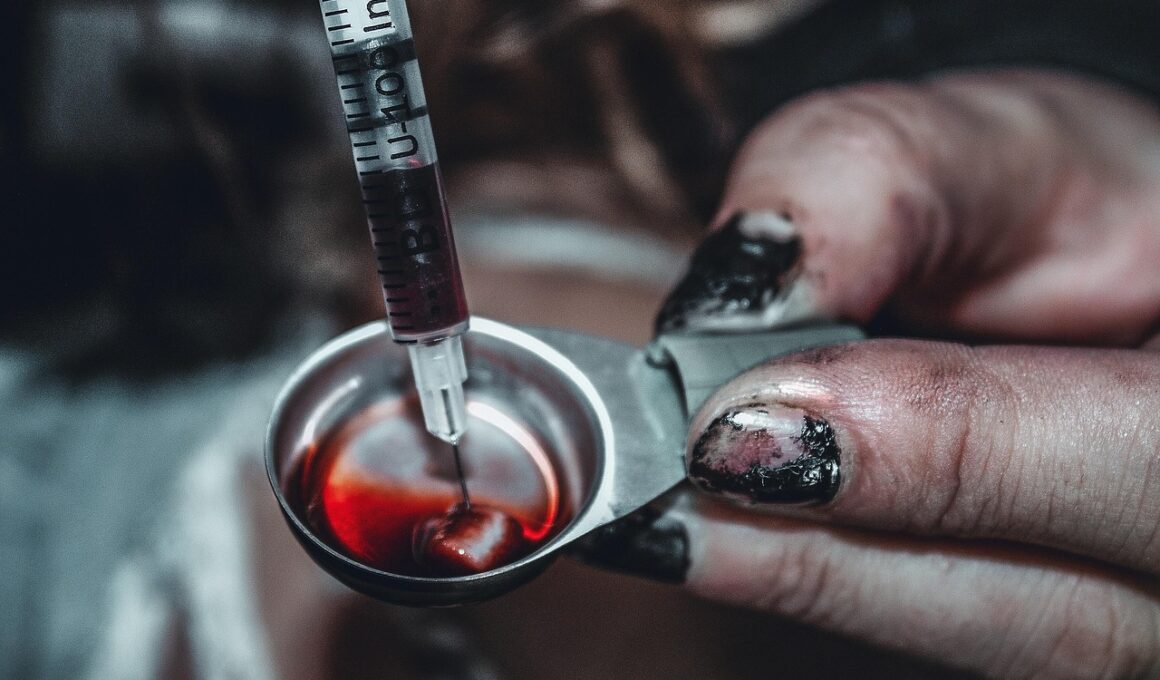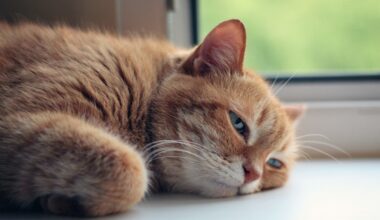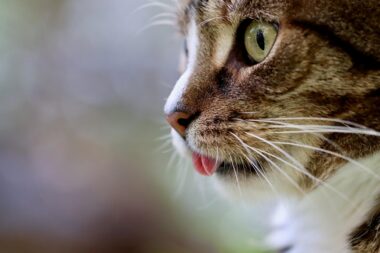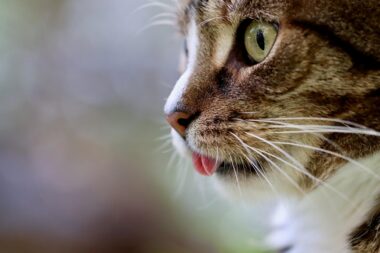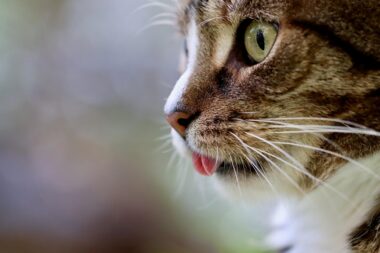How to Identify Vitamin Poisoning in Cats
Vitamin overdose in cats can lead to serious health issues, making it essential for pet owners to identify the signs early. Cats typically get their vitamins from their diet, mainly through specialized cat food featuring essential nutrients. However, some owners administer additional vitamin supplements thinking they are beneficial. When given excessively, these vitamins can be toxic. Cats consuming too much Vitamin A may develop hypervitaminosis A, leading to bone deformities and serious complications. Similarly, an overload of Vitamin D can cause kidney damage, as it leads to excessive calcium levels in the blood, also known as hypercalcemia. It’s crucial to know the acceptable vitamin levels for cats to ensure proper supplementation and avoid harmful consequences. Monitoring your cat’s overall health, mood, and appetite can help you detect any unusual changes. Regular veterinary check-ups are vital, as the professional can guide proper supplementation. By being proactive, you can safeguard your feline friend from the potential risks that accompany vitamin overdosing. Always consult a veterinarian before introducing any new supplements to your pet’s regimen, ensuring safety and well-being.
Identifying vitamin overdose requires vigilance and awareness of symptoms that might indicate toxicity. Signs of vitamin overdose vary depending on which vitamin is consumed in excess. For example, cats may experience vomiting, diarrhea, and lethargy due to an overload of fat-soluble vitamins, such as Vitamins A, D, E, and K. Contrarily, water-soluble vitamins like B and C are generally less likely to cause long-term harm but can still result in gastrointestinal upset. Another common symptom to watch for is excessive thirst and urination, especially with Vitamin D excess, which may indicate kidney issues. Cats may also experience muscle weakness and appetite changes, making them less inclined to eat. As pet owners, it’s important to note behavioral changes or health concerns in our pets, as these could relate to vitamin toxicity. Understanding the different effects of each vitamin and being mindful of your cat’s routine can help you take immediate action when needed. If you suspect vitamin poisoning, consult your veterinarian without delay. Quick intervention can prevent serious outcomes for your feline companion.
Recognizing Symptoms of Vitamin Toxicity
Recognizing the symptoms of vitamin toxicity in cats is essential for timely intervention. If your cat exhibits sudden changes in appetite, activity level, or behavior, it may indicate an issue with their vitamin intake. Signs such as constipation, increased irritability, or lethargy may also suggest toxicity. If you notice any combination of these symptoms, it’s prudent to assess their dietary intake, looking for any recent changes in their supplements or food. Some vitamins, particularly the fat-soluble ones, can accumulate in the body over time, leading to higher toxicity risks. Additionally, behavioral signs like increased aggression or hiding can indicate discomfort or health issues. It’s crucial to maintain a detailed record of what your cat eats and any supplements administered. This information is invaluable for your veterinarian, as they may need to investigate further. Always prioritize your cat’s comfort and well-being by monitoring them closely. Early detection of symptoms will lead to more effective treatments and better health outcomes. By staying informed and attentive, you can help ensure your feline friend remains safe and healthy.
A proper approach to cat dietary management involves understanding nutritional needs without excessive supplementation. It’s vital to feed your cat a balanced diet that meets their specific requirements as informed by veterinary guidance. Commercial cat foods are typically formulated to provide the essential nutrients required by your feline friend, hence you might not need to add extra vitamins. In certain instances, specific health conditions might require supplementing certain vitamins or minerals to aid recovery; however, the guidance of a qualified veterinarian is paramount. For example, a cat with specific kidney issues may benefit from different dietary choices including fortified nutrients. Counterproductive supplementation can hinder your cat’s growth and wellbeing, leading to complications. Furthermore, some vitamins can interact negatively with medications that your cat may be taking, complicating their health management. Be consistent in your approach, and evaluate your cat’s diet regularly. Review ingredient labels on commercial food packages to ensure proper nutrition. This ensures that your cat stays vibrant and healthy without the risks associated with vitamin overdose.
Effective Prevention Strategies
Preventing vitamin overdose in cats can be straightforward with the right strategies in place. One of the most effective methods is to consult your veterinarian to establish a diet tailored to your cat’s specific needs. An appropriate cat food should contain all the necessary vitamins and minerals for your pet’s age, weight, and health condition. Regular check-ups not only keep vaccines updated but also allow for a review of your cat’s diet and any potential deficiencies. Additionally, avoid self-prescribing vitamins or supplements without professional guidance. Consider creating an organized feeding schedule that focuses on portion control with appropriate serving sizes. Educate yourself on the specific needs of your cat, understanding the consequences of negligence when it comes to vitamins. By sticking to a consistent routine and promoting proper dieting habits, you can limit the risks that come with vitamin overdosing. Eliminate any access to human food or vitamin supplements that aren’t specifically formulated for felines. These small adjustments can go a long way in ensuring a healthier life for your cat.
Another vital element in preventing vitamin toxicity is being cautious about any environmental factors that may lead to unintentional overdose. Maintain awareness about the sources of vitamin supplements within your household and secure them in places inaccessible to your pets. If you have multiple pets, ensure every individual receives their designated dietary needs without overlap. Always offer fresh water alongside meals to promote hydration, as this helps the body process vitamins efficiently. Moreover, observe your pets closely when introducing new foods or treats, as some may contain more vitamins than necessary. Ensure that any treats align with your veterinarian’s recommendations. It’s also a good idea to stay updated on any recalls regarding cat food. The industry’s frequent changes can potentially lead to sudden health risks due to unlabelled ingredients or excessive vitamin levels. Share knowledge with fellow pet owners to spread awareness regarding safe dietary practices for cats. By being proactive, you can contribute to a culture of responsible pet care that prioritizes feline health and well-being.
When to Seek Veterinary Attention
If vitamin toxicity is suspected, swift veterinary intervention is crucial for effective management. Symptoms can escalate rapidly, and immediate action may be required to prevent severe health issues. If any signs of overdose manifest, such as excessive vomiting, diarrhea, or extreme lethargy, contact your veterinarian right away. Be prepared to provide a comprehensive overview of your cat’s dietary patterns and any recent additives. The vet may recommend diagnostic tests to evaluate kidney function and vitamin levels in the bloodstream. Treatment typically involves discontinuing vitamin intake and may include intravenous fluids to address dehydration and restore proper function. Depending on the severity of the situation, your veterinarian may recommend specific therapies, medications, or dietary adjustments. Education is essential; understanding the potential risks associated with vitamin overdose will promote a culture of safety for pet owners. Regular communication with your vet regarding any dietary changes is highly encouraged. Keeping your pet healthy is an ongoing process that requires diligence and commitment. Through responsible practices and consistent monitoring, you can ensure a fulfilling life for your beloved cat.
In conclusion, identifying and addressing vitamin overdose risks in cats requires awareness and proactive measures. Remain vigilant about your pet’s dietary needs while fostering an environment of healthy living standards. Ensure that you consult with your veterinarian, who holds the expertise to navigate any nutritional concerns your cat may face throughout its life. Diligently monitor for any signs of vitamin toxicity, and take prompt action when necessary. Creating an informed approach to your cat’s nutrition will significantly reduce the chances of overdosing and enhance their overall health. An informed cat owner is empowered to make the right decisions concerning their pet’s needs. Discuss any changes, updates, or concerns with your veterinarian regularly for comprehensive care. Above all, recognize that prevention is the best strategy against vitamin overdose risks in cats. The journey towards proper health is best approached with compassion, knowledge, and responsibility. Prioritize your cat’s welfare through well-informed decisions, creating a future filled with happiness and vitality. With the right precautions, your feline companion can thrive and enjoy a long, healthy, and happy life.
